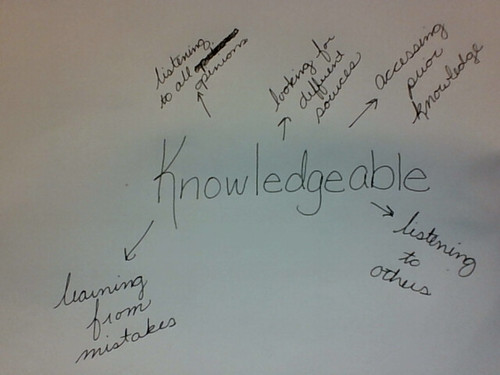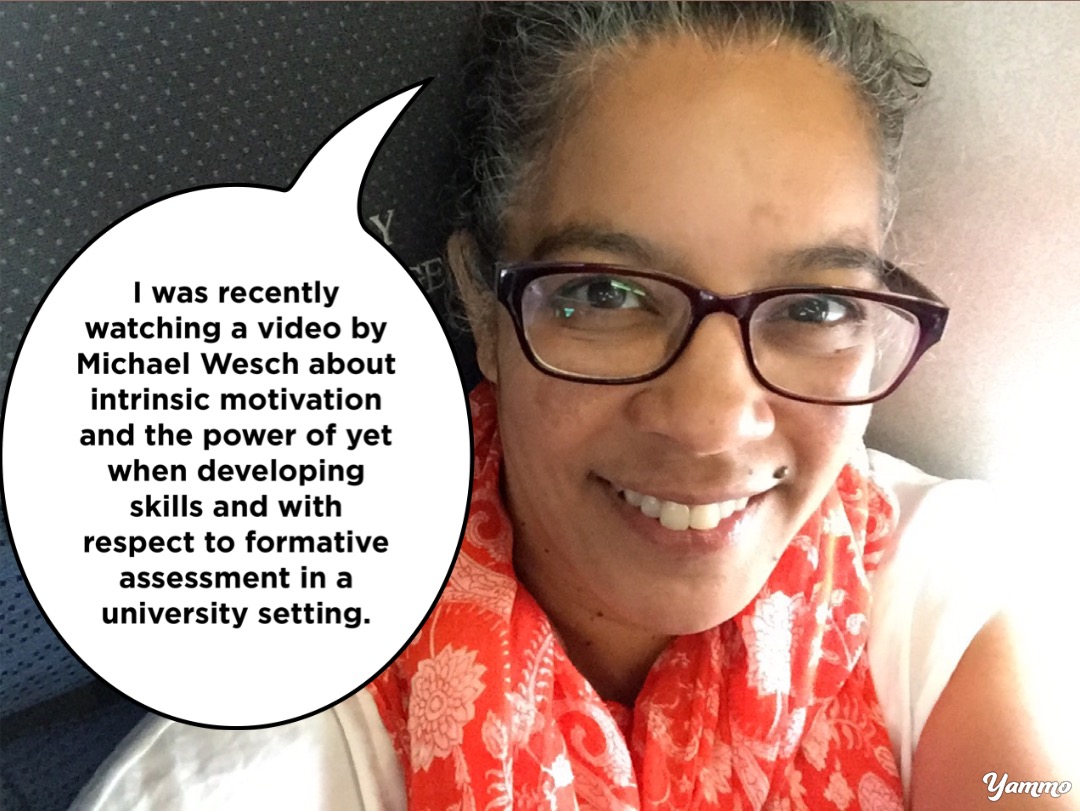University Lessons for the K-5 Classroom
I might be a Michael Wesch groupie… I have watched several of his videos and mentioned them in more than one blog post.
I first came across him through ds106 back in 2012 when I watched his presentation to the faculty at the University of Mary Washington and briefly blogged about it here. At that time, I learned that technology is not just a tool or a means of communication – it can change the way we interact. While there can be challenges with this, it is not necessarily a bad thing… We were both very upbeat about the potential for being able to use the tools to collaborate, organize, create and publish.
Michael Wesch at UMW Faculty Academy Part 1 from umwnewmedia on Vimeo.
He popped up again when I dropped in on a Connected Courses session in 2014. He moderated a discussion about the purpose of higher education with Cathy Davidson and Randy Bass. It was comforting for me to hear how those who teach in higher education have determined the same thing as those of us in K-5 education: the best lessons are those where students to want to revise their work, work on a problem that matters to them, have a real audience, want to do the work, and are immersed in the discipline.
Learning Arc
It has also been interesting for me to see how his personal learning has mirrored my own – from wondering how best to engage learners to utilizing tools to connect learners to exploring the nature of learning, in general.
I started messing about with technology in the classroom ages ago by creating webpages in 1996, using the open-ended Orly’s Draw-a-Story and trying to figure out Where in the World Carmen Sandiego was in 1999.
Now Mystery Skypes or Hangouts let us connect to real students around the world and determine their location basically by playing 20 questions and portfolio or blog platforms make it easy for even the youngest learners to share their thinking with the world.
I too would like to leverage peers to help us all develop skills and ensure that the learning journey is more important than the final product and to focus on the communal aspect of the web to help one another learn and succeed.
We have both more recently explored creative ventures such as creating films to share our understanding with others.
Applications for K-5 Teachers
In a recent workshop I led about The Role of ICT in the PYP I was very pleased that my participants seemed to enjoy the video from Knowledgeable to Knowledge-able as much as me!
In the workshop we identified the following as key ideas:
- Need to go beyond critical thinking
- Need to develop the skills to connect, organize, share, collect, collaborate, and publish
- Layers of creativity
- Embrace real problems
- Harness and leverage relevant tools
I assigned each participant an attribute of the IB Learner Profile and as they watched the video, they reflected on how their trait was connected.
Afterwards they were introduced to the idea of Sketchnotes and drew how their Learner Profile attribute was connected to technology use in the classroom. They then posted their drawings to their Seesaw blogs and made links between the Learner Profile and PYP Attitudes. The final products are not necessarily works of art but the deep thinking and conversations that happened as a result of these provocations were inspiring.

Whenever I plan a workshop I seem to go back and see what Michael’s got going on. Even though he talks about teaching higher education, I find that I can always make connections to what I do with K-5 teachers and students.
I find it fascinating that a university professor’s ideas about learning can impact K-5 education…

Leave a Reply